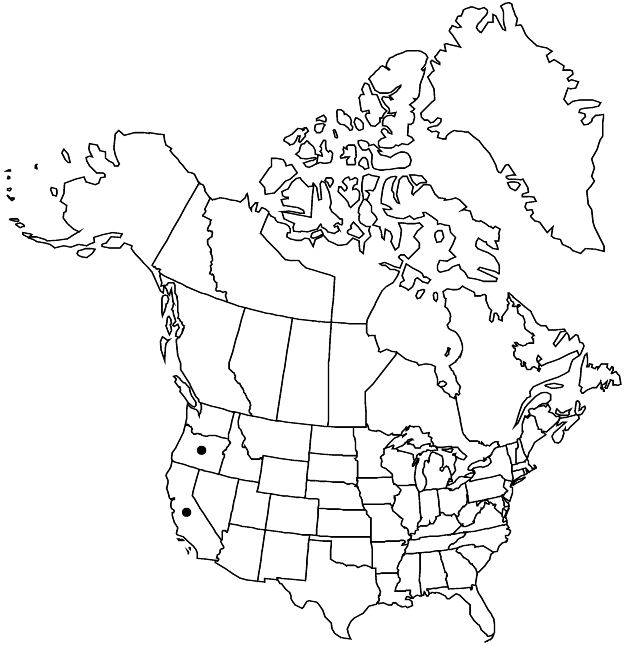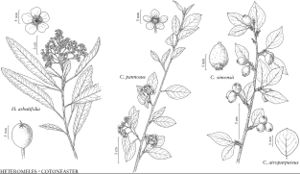Difference between revisions of "Cotoneaster pannosus"
Pl. Delavay., 223. 1890.
FNA>Volume Importer |
imported>Volume Importer |
||
| (5 intermediate revisions by 2 users not shown) | |||
| Line 10: | Line 10: | ||
|special_status={{Treatment/ID/Special_status | |special_status={{Treatment/ID/Special_status | ||
|code=F | |code=F | ||
| − | |label= | + | |label=Illustrated |
}}{{Treatment/ID/Special_status | }}{{Treatment/ID/Special_status | ||
|code=I | |code=I | ||
| Line 31: | Line 31: | ||
|elevation=0–800 m | |elevation=0–800 m | ||
|distribution=Calif.;Oreg.;Asia (China);introduced also in Europe;Africa (South Africa);Pacific Islands (Hawaii;New Zealand);Australia. | |distribution=Calif.;Oreg.;Asia (China);introduced also in Europe;Africa (South Africa);Pacific Islands (Hawaii;New Zealand);Australia. | ||
| + | |introduced=true | ||
|tables= | |tables= | ||
|references= | |references= | ||
| Line 39: | Line 40: | ||
-->{{#Taxon: | -->{{#Taxon: | ||
name=Cotoneaster pannosus | name=Cotoneaster pannosus | ||
| − | |||
|authority=Franchet | |authority=Franchet | ||
|rank=species | |rank=species | ||
| Line 54: | Line 54: | ||
|publication title=Pl. Delavay., | |publication title=Pl. Delavay., | ||
|publication year=1890 | |publication year=1890 | ||
| − | |special status= | + | |special status=Illustrated;Introduced |
| − | |source xml=https:// | + | |source xml=https://bitbucket.org/aafc-mbb/fna-data-curation/src/2e0870ddd59836b60bcf96646a41e87ea5a5943a/coarse_grained_fna_xml/V9/V9_760.xml |
|subfamily=Rosaceae subfam. Amygdaloideae | |subfamily=Rosaceae subfam. Amygdaloideae | ||
|tribe=Rosaceae tribe Gillenieae | |tribe=Rosaceae tribe Gillenieae | ||
Latest revision as of 22:59, 5 November 2020
Shrubs, 1–5 m. Stems erect, wide-spreading, arching, pendulous, slender; branches spiraled, purple-black, tomentose-villous. Leaves persistent; petiole 4–7 mm, tomentose; blade elliptic, sometimes broadly elliptic, 15–35(–39) x 10–19(–26) mm, mid-coriaceous, base cuneate, margins flat, veins 4–6, usually superficial, sometimes slightly sunken, apex acute or obtuse, abaxial surfaces whitish tomentose, adaxial green to blue-green, dull, not glaucous, usually flat between lateral veins, initially sparsely pilose. Inflorescences on fertile shoots 20–45 mm, usually with 4 leaves, (3–)5–15(–25)-flowered, compact. Pedicels 1–5 mm, tomentose. Flowers [7–]8.5–10 mm diam.; buds white; hypanthium funnelform or cupulate, silky-tomentose; sepals: margins villous, borders white, narrow, membranous, apex red, cuspidate, sometimes acute or obtuse, surfaces tomentose; petals spreading, white, sometimes with hair tuft; stamens 16–20, filaments white, anthers dark pink-purple to purple; styles (1 or)2. Pomes red, globose, depressed-globose, subglobose, or broadly obovoid, 5–9.2 × 5.5–9.5 mm, shiny, not glaucous, villous; sepals suberect, tomentose; navel open; style remnants at apex. Pyrenes (1 or)2. 2n = 68 (Germany).
Phenology: Flowering May–Aug; fruiting Oct–May.
Habitat: Thickets, meadows, sea cliffs, canyons, coastal chaparral, springs, edges, waste ground, pastures, disturbed forests
Elevation: 0–800 m
Distribution

Introduced; Calif., Oreg., Asia (China), introduced also in Europe, Africa (South Africa), Pacific Islands (Hawaii, New Zealand), Australia.
Discussion
Selected References
None.
